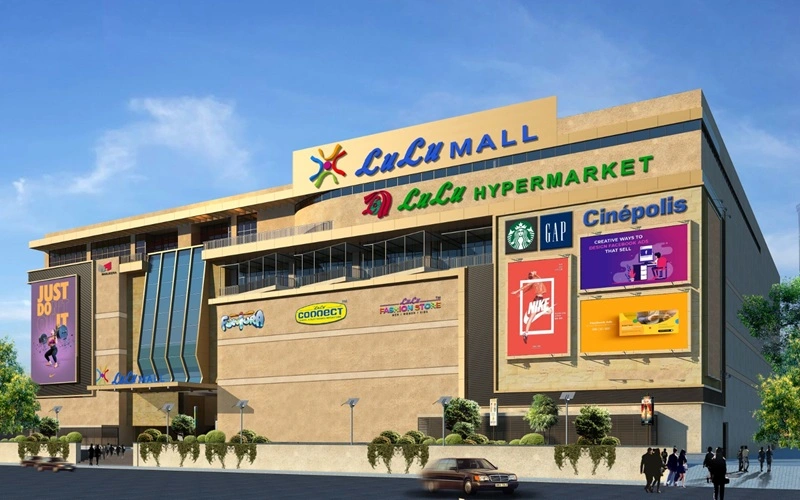If you’ve ever strolled through bustling malls in Kochi, Hyderabad, or Lucknow, you’ve likely been drawn to the gleaming facades of a LuLu Mall—with its sprawling ice rinks, vast food courts, and hypermarkets. Their scale is undeniable, but a fascinating question often arises: who is the Lulu Mall owner behind this retail empire? Is it a private investor, a public company, or the vision of a single entrepreneur?
The Face Behind the Brand: M. A. Yusuff Ali & LuLu Group International
Lulu Mall owner is not a faceless corporation—it’s LuLu Group International, led by its visionary founder, M. A. Yusuff Ali.
-
Born in Nattika, Kerala in 1955, Yusuff Ali moved to Abu Dhabi in 1973 to help his uncle’s wholesale business.
-
In 1990, he launched the first LuLu Hypermarket, pioneering large-format retail in the Middle East.
-
Today, LuLu Group International, headquartered in Abu Dhabi, spans 25 countries, over 259 outlets, 65,000 employees, and boasts annual turnover around US$8 billion.
Founding Story: From Simple Grocer to Retail Powerhouse
Yusuff Ali harnessed an acute market insight: imported goods were scarce in the UAE, creating huge demand. He responded with large-scale hypermarkets featuring a wide variety of imports and competitive pricing.
Within a decade, the chain grew regionally. This success spurred a bold vision: transitioning from hypermarkets to international malls, leading to the birth of LuLu Malls across the GCC and India.
Business Vision: One-Stop Destination for Shopping and Leisure
The strategic aim of the Lulu Mall owner is crystal clear: each mall should offer a unique destination experience with:
-
LuLu Hypermarket as the anchor
-
Over 200–300 global and local brands
-
Large food courts, fine dining, and cafes
-
Entertainment zones: cinemas, ice rinks, bowling, and arcades
-
Strong community connectivity—mall-metro integration, ample parking, and frequent events
This model transforms malls into lifestyle hubs—not just shopping centers.
Launch Mechanics: Building Landmark Malls in India
LuLu’s entry strategy in India began in 2013 with Kochi, followed by Thiruvananthapuram in 2021, Lucknow in 2018, and Hyderabad in 2023.
Each mall involved ₹2,000–3,500 crore investments, government collaboration, and state-of-the-art design—such as sky-lit atriums and urban piazzas.
The Lulu Mall owner prioritized integration—like direct metro access in Kochi’s Ernakulam and underground parking—for seamless public connection.
Business Model: Vertical Integration, Diversified Portfolio
LuLu Group International, under Yusuff Ali’s leadership, built a powerful structure:
-
Corporate hypermarket operations with in-house sourcing, logistics, and food processing facilities.
-
Mall development and management—collaborations with architects like Atkins and developers like Shapoorji Pallonji.
-
Leasing & operating stores via Tablez, their retail services company.
-
Entertainment verticals focused on customer dwell-time—cinemas, skating rinks, bowling, and children’s zones.
This integrated approach ensures revenue from retail, rentals, hospitality, and entertainment services.
Marketing Approach: Community Integration & Shopper Engagement
Localized Launches & Government Ties
Each mall opening is celebrated with government officials—e.g., Telangana’s KTR launching Hyderabad mall—demonstrating alignment with regional growth.
Experience-Driven Engagement
LuLu’s marketing revolves around destination dynamics: midnight sales events, entertainment promotions, and family-centric programming.
Loyalty & Digital Strategy
Programs like LuLu Happiness enhance shopper retention via app-based perks and seamless omni-channel experiences.
Expansion Strategy: From GCC to Pan-India Retail Crown
The Lulu Mall owner has advanced through:
-
GCC dominance: Over 240 hypermarkets and 13 malls.
-
Strategic Indian roll-out: Kochi → Thiruvananthapuram → Lucknow → Hyderabad.
-
Further expansion planned: Ahmedabad, Chennai, Varanasi, Delhi, Mumbai—financially backed by ₹20–30 billion investments.
This shows a methodical geographic rollout backed by heavy capital and local partnerships.
Market Presence & Performance Metrics
-
People footfall: Kochi mall saw 180 million visits over 11 years; Lucknow mall hit 100,000 on opening day.
-
Hypermarket reach: ~1.6 million daily shoppers across 10+ countries.
-
Employment data: 65,000 employees globally, with 45,000 from India—largest Indian diaspora employer in GCC.
-
Financial scale: $7–8+ billion in revenues; IPO plans launched via Abu Dhabi listing worth $1.4–1.7 billion.
The Owner’s Strategic Impact on Lulu Mall Growth
Visionary Leadership
Yusuff Ali’s mindset—“swim against the tide”—led him to build malls even when others doubted, culminating in GCC retail dominance and international trust.
Deep Local Ties
Close relationships with gulf and Indian governments secured smooth approvals, generous land allotments, and public goodwill for massive mall developments.
Investing in Infrastructure & Scale
Funds are channelled into mega-malls, logistics, and malls—especially India projects like Ahmedabad—with ₹20–30 billion in planned investment.
Multi-Vertical Synergy
Moreover, Lulu’s breadth—hypermarkets, malls, food processing, hospitality—drives synergy across the ecosystem, boosting profitability and resilience.
Community and Small-Business Feedback
Reddit discussions reflect Lulu Mall’s impact:
“Lulu is open 365 days… Many shops close on Sundays… smaller corner supermarkets are affected.”
“Gaming, ice rink, bowling, cheaper electronics—Lulu better than local competition.”
This reflects Lulu’s capacity to reshape local retail dynamics—often outperforming local shops, and boosting urban entertainment infrastructure.
Legal & Social Considerations
Parallel to its success, Lulu has faced scrutiny:
-
A PIL in Andhra Pradesh questioned concessional land allotment for a proposed mall—indicating regulatory vigilance.
Despite scrutiny, the case shows Lulu’s scale invites institutional oversight.
Conclusion: Unveiling the “Lulu Mall Owner”
-
Lulu Mall owner is LuLu Group International, led by M. A. Yusuff Ali, an Indian entrepreneur in Abu Dhabi.
-
Founded in the 1990s, the group built hypermarket dominance before branching into large-scale malls in the GCC and India.
-
Their business model integrates retail, entertainment, and hospitality, anchored by infrastructure investment and government partnerships.
-
Lulu’s expansion strategy—carefully paced, financially supported, and vertically integrated—caters to evolving Indian urban lifestyles.
-
Yusuff Ali’s vision—coupled with local engagement, mega-investments, and product integration—has elevated Lulu Mall from shopping centers to lifestyle destinations.
If you’ve ever asked, “who is the Lulu Mall owner?”, now you know: it’s a well-crafted vision helmed by a bold entrepreneur and manifested through an $8 billion global retail powerhouse. Their impact continues to ripple across economies, communities, and shopper expectations.
Related Article –
Who Is the Campa Cola Owner? Discover the Brand Revival
